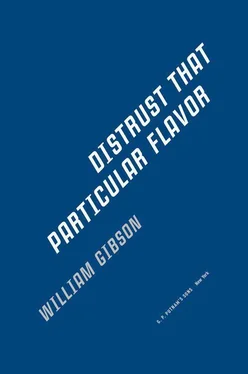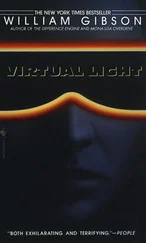The end-point of human culture may well be a single moment of effectively endless duration, an infinite digital Now. But then, again, perhaps there is nothing new, in the end of all our beginnings, and the bison will be there, waiting for us.

I would like to take this opportunity to thank Forbes (more properly the editors of Forbes ASAP) for inviting me to write basically anything at all, then not messing with it when I did. I have been mining this piece for over a decade now, most consciously for talks, less consciously but more constantly for fiction.
It was entirely a matter of taking dictation from some part of my unconscious that rarely checks in this directly. I wish that that happened more frequently, but I’ll take what I can get.


THE STORY OF FILM begins around a fire, in darkness. Gathered around this fire are primates of a certain species, our ancestors, an animal distinguished by a peculiar ability to recognize patterns.
There is movement in the fire: embers glow and crawl on charcoal. Fire looks like nothing else. It generates light in darkness. It moves. It is alive.
The surrounding forest is dark. Is it the same forest our ancestors know by day? They can’t be sure. At night it is another place. Without form, it is that on which our ancestors project the patterns their interestingly mutated brains generate.
This pattern-reading mutation is crucial to the survival of a species that must ceaselessly hunt, ceaselessly gather. One plant is good to eat; it grows in summer in these lowlands. But if you eat its seedpods, you sicken and die. The big, slow-moving river-animal can be surprised and killed, here in these shallows, but will escape in deeper water.
This function is already so central, in our ancestors, that they discover the outlines of the river-animal in clouds. They see the faces of wolves and of their own dead in the flames. They are already capable of symbolic thought. Spoken language is long since a fact for them but written language has not yet evolved. They scribe crisscross patterns on approximately rectangular bits of ocher, currently the world’s oldest known human art.
They crouch, watching the fire, watching its constant, unpredictable movements, and someone is telling a story. In the watching of the fire and the telling of the tale lie the beginning of what we still call “film.”
Later, on some other night, uncounted generations up the timeline, their descendants squat deep in caves, places of eternal night — painting. They paint by the less restless light of reeds and tallow. They paint the wolves and the river-animal, the gods and their dead. They have found ways to take control of certain aspects of the cooking-fire universe. Darkness lives here, in the caves; you needn’t wait for dusk. The reeds and tallow throw a steadier light. Something is being turned inside out, here, for the first time: The pictures in the patterning brain are being projected, rendered. Our more recent ancestors will discover these stone screens, their images still expressing life and movement, and marvel at them, and not so long before the first moving images are projected.
WHAT WE CALL “media” were originally called “mass media,” technologies allowing the replication of passive experience. As a novelist, I work in the oldest mass medium, the printed word. The book has been largely unchanged for centuries. Working in language expressed as a system of marks on a surface, I can induce extremely complex experiences, but only in an audience elaborately educated to experience this. This platform still possesses certain inherent advantages. I can, for instance, render interiority of character with an ease and specificity denied to a screenwriter. But my audience must be literate, must know what prose fiction is and understand how one accesses it. This requires a complexly cultural education, and a certain socioeconomic basis. Not everyone is afforded the luxury of such an education.
But I remember being taken to my first film, either a Disney animation or a Disney nature documentary (I can’t recall which I saw first), and being overwhelmed by the steep yet almost instantaneous learning curve: In that hour, I learned to watch film. Was taught, in effect, by the film itself. I was years away from being able to read my first novel, and would need a lot of pedagogy to do that. But film itself taught me, in the dark, to view it. I remember it as a sort of violence done to me, as full of terror as it was of delight. But when I emerged from that theater, I knew how to watch film.
What had happened to me was historically the result of an immensely complex technological evolution, encompassing optics, mechanics, photography, audio recording, and much else. Whatever film it was that I first watched, other people around the world were also watching, having approximately the same experience in terms of sensory input. And that film no doubt survives today, in Disney’s back catalog, as an experience that can still be accessed.
That survival, I think, is part of the key to understanding where the digital may be taking us. In terms of most of our life so far, as a species, it’s not a natural thing to see the dead, or hear their voices. I believe the significance of that is still far from being understood. We can actually see what life, at least in some very basic sense, was like, one hundred years ago. We can watch a silent movie, and not only see people who are long dead, but see people who were in their seventies and eighties in the 1920s, and who therefore bore the affect of their developing years — i.e., from before the Civil War, and earlier. It is as if in 1956 we had been able to watch silent film of, say, the Lincoln — Douglas debates, or the various revolutions of 1848. When the ramifications of this are really thought about, it becomes awesome in almost a religious sense.
Our ancestors, when they found their way to that first stone screen, were commencing a project so vast that it only now begins to become apparent: the unthinking construction of a species-wide, time-defying, effectively immortal prosthetic memory. Extensions of the human brain and nervous system, capable of surviving the death of the individual — perhaps even of surviving the death of the species. The start of building what would become civilization, cities, cinema. Vast stone calendars, megalithic machines remembering the need to plant on a given day, to sacrifice on another.
With the advent of the digital, which I would date from, approximately, World War II, the nature of this project begins to become more apparent, more overt; the texture of these more recent technologies, the grain of them, becomes progressively finer, progressively more divorced from Newtonian mechanics. In terms of scale, they are more akin to the workings of the brain itself.
All of us, creators or audience, have participated in the change so far. It’s been something many of us haven’t yet gotten a handle on. We are too much of it to see it. It may be that we never do get a handle on it, as the general rate of technological innovation shows no indication of slowing.
Much of history has been, often to an unrecognized degree, technologically driven. From the extinction of North America’s mega-fauna to the current geopolitical significance of the Middle East, technology has driven change. (That’s spear-hunting technology for the mega-fauna and the internal combustion engine for the Middle East, by the way.) Very seldom do nations legislate the emergence of new technologies.
Читать дальше












